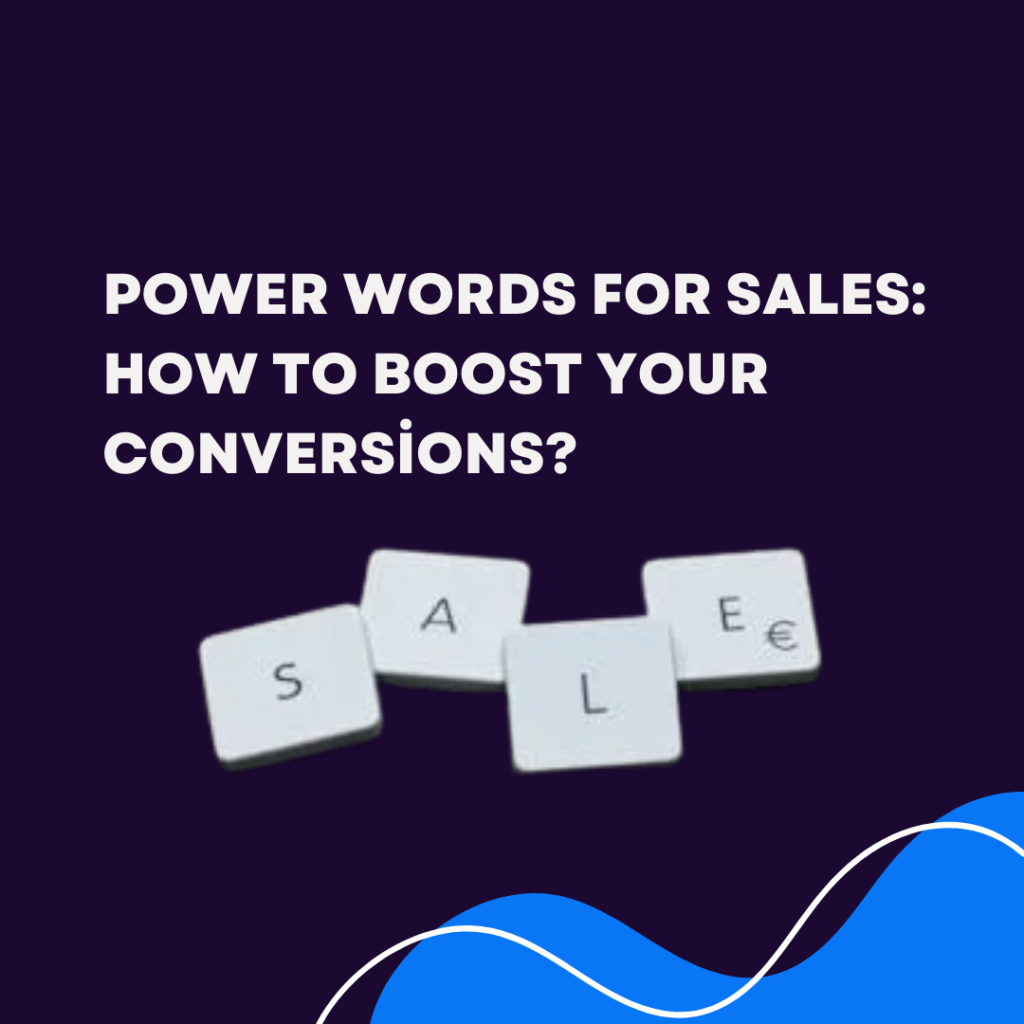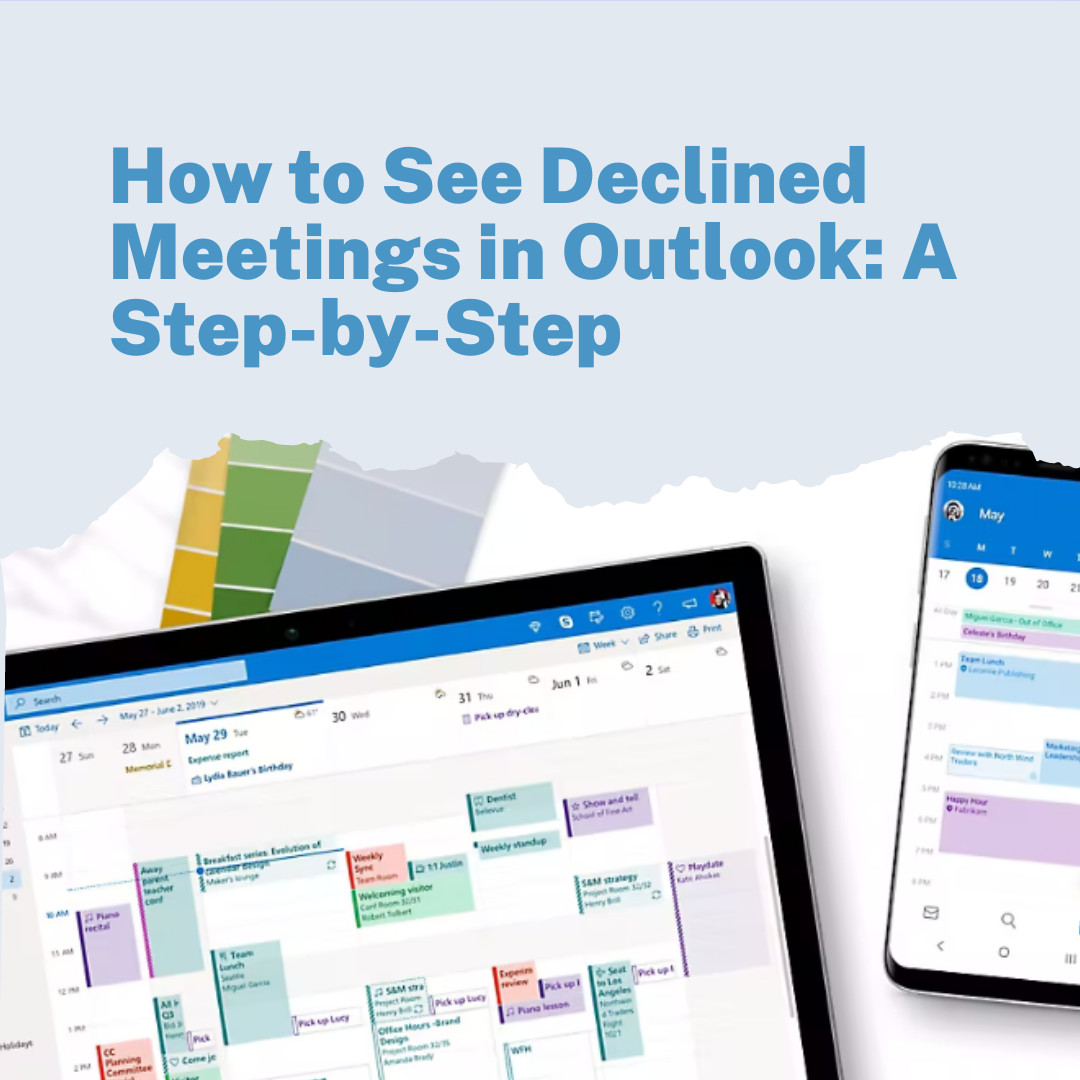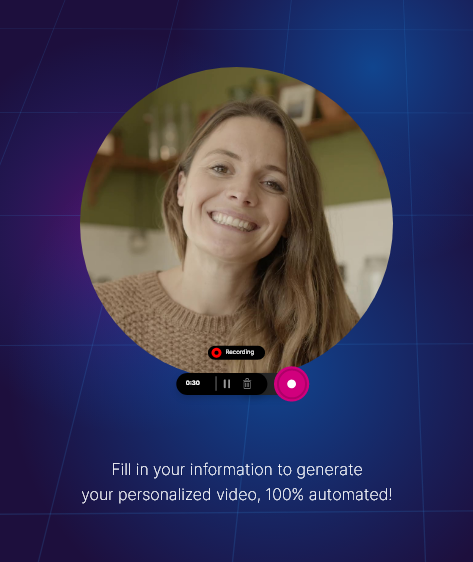In the world of sales, the difference between closing a deal and losing a potential customer can often come down to the words you use. Language is a powerful tool that, when wielded correctly, can significantly influence the decisions and behaviors of your audience. This is where “power words” come into play. Power words for sales are persuasive, emotive words that can trigger a psychological or emotional response, compelling your audience to take action.
This blog post will delve into the concept of power words, how they can be strategically used in sales, and the specific words that can help you boost your conversions. Whether you’re crafting sales copy, engaging in face-to-face sales, or communicating through digital platforms, understanding and implementing powerful words can give you a significant edge over your competition.

Understanding the Psychology Behind Power Words
Before we dive into specific power words, it’s essential to understand why these words are so effective. The key to their power lies in human psychology. People are driven by emotions, and the right words can evoke specific emotional responses that influence behavior. For example, words like “free,” “exclusive,” and “limited” can create a sense of urgency and desire. On the other hand, words like “guaranteed” and “proven” build trust and credibility.
The Role of Emotions in Decision Making
Research has shown that emotions play a critical role in decision-making. According to neuroscientist Antonio Damasio, emotions are a necessary ingredient to almost all decisions. When people make decisions, they subconsciously assess how they feel about the options available. Therefore, using power words that evoke positive emotions can lead to more favorable decisions, such as making a purchase or subscribing to a service.
The Concept of “Priming”
Priming is a psychological phenomenon where exposure to a stimulus influences how people respond to a subsequent stimulus. In the context of sales, using power words can prime your audience to be more receptive to your message. For example, if you use the word “imagine” at the beginning of your sales pitch, you prime your audience to visualize the benefits of your product or service, making them more likely to be persuaded.
The Power of Specific Words in Sales
Now that we’ve covered the psychology behind power words, let’s explore some specific words and phrases that can enhance your sales efforts. These words are categorized based on the emotional response they are likely to trigger.
Words That Create Urgency
Urgency is a powerful motivator in sales. When people feel that they might miss out on something valuable, they are more likely to take action. Here are some power words that create a sense of urgency:
- Limited Time: Implies that the offer is only available for a short period.
- Hurry: Encourages immediate action.
- Now: Promotes instant gratification.
- Today: Creates a sense of immediacy.
- Last Chance: Indicates that the opportunity is about to end.
Using these words in your sales copy can prompt potential customers to act quickly rather than delaying their decision.
Words That Build Trust
Trust is a crucial component of any sales transaction. If your audience doesn’t trust you or your product, they are unlikely to make a purchase. Here are some power words that can help build trust:
- Proven: Suggests that the product or service has been tested and is effective.
- Guaranteed: Offers assurance that the customer will get the desired results.
- Official: Implies credibility and authority.
- Certified: Indicates that the product meets specific standards.
- Trusted: Suggests that others have already put their faith in the product.
These words help reassure your audience that they are making a safe and wise decision by choosing your product or service.
Words That Convey Value
People are always looking for value in their purchases. Highlighting the value of your product or service can make it more appealing. Here are some power words that convey value:
- Free: Everyone loves getting something for nothing.
- Exclusive: Suggests that the offer is special and not available to everyone.
- Premium: Implies high quality.
- Bonus: Indicates that the customer is getting something extra.
- Bargain: Suggests that the customer is getting a good deal.
Using these words can make your offer seem more attractive and worth the investment.
Words That Tap into FOMO (Fear of Missing Out)
FOMO is a powerful psychological trigger that can drive people to make purchases they might otherwise skip. Here are some power words that tap into this fear:
- Limited: Implies scarcity, which can make the product seem more desirable.
- Exclusive Access: Suggests that only a select few will get the opportunity.
- Only: Reinforces the idea of scarcity.
- Don’t Miss Out: Encourages immediate action to avoid regret.
- Act Fast: Urges quick decision-making.
These words can create a sense of urgency and exclusivity that motivates your audience to act before it’s too late.
Words That Appeal to Self-Interest
People are naturally inclined to care about their own interests. By appealing to this, you can make your sales pitch more compelling. Here are some power words that appeal to self-interest:
- You: Directly addresses the customer, making the message personal.
- Easy: Suggests that the product is simple to use and won’t require much effort.
- Results: Focuses on the benefits the customer will receive.
- Save: Appeals to the desire to conserve resources, whether it’s time, money, or effort.
- Best: Implies superiority over other options.
These words help make your offer more attractive by emphasizing the benefits to the customer.
Practical Applications of Power Words in Sales
Knowing which power words to use is only half the battle. You also need to know how to incorporate them effectively into your sales strategy. Below are some practical applications of power words in various sales scenarios.
Crafting Compelling Sales Copy
When writing sales copy, whether for a website, email campaign, or advertisement, incorporating power words can significantly boost your conversion rates. Here’s how you can do it:
- Headlines: Use power words in your headlines to grab attention. For example, “Limited Time Offer: Get Exclusive Access to Our Premium Features Now!”
- Call to Action (CTA): Your CTA should be clear, concise, and action-oriented. For example, “Act Now and Secure Your Spot!” or “Claim Your Free Trial Today!”
- Product Descriptions: Highlight the benefits and unique selling points of your product using power words. For example, “Our certified organic skincare line is proven to deliver visible results in just two weeks.”
By strategically placing power words in your sales copy, you can create a more persuasive message that resonates with your audience.
Enhancing Verbal Sales Pitches
In face-to-face or over-the-phone sales, your choice of words can make a big difference. Here’s how to incorporate power words into your verbal sales pitches:
- Introduction: Start with a strong opening that includes a power word. For example, “I’m excited to share with you our exclusive offer that is available for a limited time.”
- Objection Handling: Use power words to reassure potential customers when they raise concerns. For example, “I understand your hesitation, but I can guarantee that this product is proven to deliver outstanding results.”
- Closing: End with a powerful statement that encourages action. For example, “This is your last chance to take advantage of this incredible bargain. Don’t miss out!”
Using power words in your verbal communication can help you build rapport with potential customers and increase your chances of closing the deal.
Writing Effective Email Campaigns
Email marketing remains one of the most effective sales channels, and powerful words can significantly enhance the impact of your emails. Here’s how to use them:
- Subject Lines: The subject line is the first thing your audience sees, so make it count. For example, “Unlock Exclusive Savings—Limited Time Only!”
- Body Content: Use power words throughout the email to keep your audience engaged. For example, “Our premium membership offers you exclusive access to our best features.”
- CTAs: End your emails with a strong CTA that includes a power word. For example, “Claim Your Free Gift Now!”
By using power words in your email campaigns, you can increase open rates, click-through rates, and conversions.
Optimizing Landing Pages
Landing pages are designed to convert visitors into leads or customers, making the use of power words essential. Here’s how to incorporate them:
- Headline: Your landing page headline should be attention-grabbing and compelling. For example, “Join Our Exclusive Community and Get Instant Access to Premium Content!”
- Bullet Points: Use power words in bullet points to highlight the key benefits of your offer. For example, “Guaranteed Results,” “Easy to Use,” and “Proven Success.”
- CTA Button: The text on your CTA button should include a power word that encourages action. For example, “Get Started Now!” or “Secure Your Spot Today!”
Optimizing your landing pages with power words can lead to higher conversion rates and better ROI.
Case Studies: Success Stories of Power Words in Action
To illustrate the effectiveness of power words in sales, let’s look at some real-world examples where businesses have successfully used these words to boost conversions.
Case Study 1: Dollar Shave Club
Dollar Shave Club, a subscription-based razor company, effectively used power words to grow from a startup to a major player in the shaving industry. Their tagline, “Our Blades Are F***ing Great,” uses the power word “great” to emphasize the quality of their product, while the irreverent language grabs attention and differentiates them from competitors.
Additionally, their marketing copy frequently includes words like “exclusive” and “guaranteed,” which build trust and create a sense of value. By consistently using power words, Dollar Shave Club was able to create a strong brand identity and rapidly
grow its customer base.
Case Study 2: Apple
Apple is another company that has mastered the use of power words in its marketing and sales strategies. For example, in promoting the iPhone, Apple often uses words like “revolutionary,” “innovative,” and “best” to position its product as superior to others on the market.
Their use of power words like “exclusive” and “limited” in product launches creates a sense of urgency and excitement, leading to high demand and long lines at Apple stores. Apple’s strategic use of power words has helped them maintain a loyal customer base and consistently achieve high sales figures.
Case Study 3: Airbnb
Airbnb has used powerful words to establish itself as a trusted platform for travelers. Words like “trusted,” “safe,” and “secure” are commonly found in their marketing materials, helping to build credibility and trust among potential users.
Airbnb also uses words like “unique” and “exclusive” to highlight the one-of-a-kind experiences that users can find on their platform. By emphasizing these aspects, Airbnb appeals to travelers looking for something different from the traditional hotel experience, contributing to their rapid growth and success.
Best Practices for Using Power Words in Sales
While powerful words are highly effective, it’s essential to use them strategically and authentically. Overusing powerful words or using them inappropriately can come across as manipulative or insincere, which can damage your credibility and trust with your audience. Here are some best practices for using power words in sales:
Be Authentic
The power words you use should align with your brand and the message you’re trying to convey. If you’re promoting a product as “premium,” make sure it truly offers high quality. Authenticity is key to building trust with your audience.
Avoid Overuse
While power words are effective, using too many in a single piece of content can dilute their impact and make your message seem exaggerated. Instead, use power words sparingly and strategically to maximize their effect.
Test and Optimize
Not all powerful words will resonate with every audience. It’s essential to test different power words in your sales copy, emails, and landing pages to see which ones work best for your specific audience. Use A/B testing to compare the performance of different power words and optimize your content accordingly.
Focus on Benefits
When using power words, focus on the benefits to the customer rather than just the features of your product or service. For example, instead of saying, “Our software is easy to use,” you could say, “You’ll save time and effort with our easy-to-use software.”
Use in Conjunction with Visuals
Power words are even more effective when used alongside compelling visuals. For example, pairing the word “exclusive” with an image of a high-end product can create a strong desire for that product. Visuals help reinforce the emotional response triggered by the power words.
Conclusion: Harness the Power of Words to Drive Sales Success
In the competitive world of sales, the words you choose can have a significant impact on your ability to convert leads into customers. By understanding the psychology behind power words and strategically incorporating them into your sales efforts, you can create more persuasive and compelling messages that resonate with your audience.
Remember that the key to using power words effectively is authenticity and relevance. Choose words that align with your brand and message, and always focus on the benefits to the customer. By following these best practices, you can harness the power of words to boost your sales and achieve your business goals.
EXPLORE: 18 Better Options to Say “Thank You for Your Understanding”






